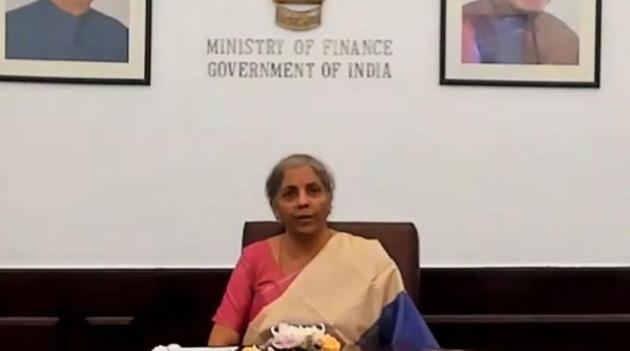‘Committed to MSPs; farm laws well thought out’, says Nirmala Sitharaman
The National Democratic Alliance (NDA) government is serious about the minimum support price (MSP) for crops and proved its intention with high levels of procurement over the last six years, finance minister Nirmala Sitharaman said on Friday, defending the farm laws from a firestorm of criticism and protests.
The National Democratic Alliance (NDA) government is serious about the minimum support price (MSP) for crops and proved its intention with high levels of procurement over the last six years, finance minister Nirmala Sitharaman said on Friday, defending the farm laws from a firestorm of criticism and protests.

Speaking at the 18th Hindustan Times Leadership Summit, Sitharaman said the three laws that were passed in September were aimed at protecting small cultivators, echoing Prime Minister Narendra Modi who told an audience in Varanasi on Monday that the laws gave small farmers the option of legal action. “Between 2014 and 2020, compared to a similar number of years previously, we have proven that we take MSP seriously. We procure under MSP much more that what earlier governments have done,” Sitharaman said.
The finance minister hailed the working of the Goods and Services Tax Council, and said she appreciated the role of every state finance minister in keeping up the spirit.
Despite recent tension between some states and the Centre over GST compensation, Sitharaman said it was one of the best things for India’s federal system.
“It is a robust system…there could be some discussion. But to be fair, everyone has spoken from the point of view of concerns freely being expressed and finding a solution,” she added.
“There has never been the kind of bitterness that sometimes gets captured outside but never truly inside the council.”
She also brought up the issue of how often should the council consider the issue of tax rate reduction or increase. “I have been requesting that the council should take a call that it doesn’t, in every one of its sitting, decide to change rates, because it upsets the calculation of revenue generation,” she said.
Sitharaman touched upon the reluctance by the Reserve Bank of India to cut policy rates and said it needed delicate, continuous real-time balance by both the monetary and fiscal authorities to revive the economy.
The finance minister also said she was not worried by food inflation, which she termed as seasonal, but acknowledged that the fiscal deficit would be higher than the 3.5% of GDP target set in the 2020 Union budget.
At the heart of the current standoff between the government and tens of thousands of farmers camped outside Delhi is the federally determined MSP system.
Sitharaman’s comments came a day before representatives from 35 farm organisations meet Union ministers for negotiations. On Friday, the protesters announced a Bharat Bandh on December 8.
Sitharaman said that under PM Modi, a lot of homework and consultations feed into any decision and that discussions on agricultural reforms were happening for a long time.
“If there are farmers who have some doubts, I am glad the agriculture minister is sitting and engaging in meaningful conversation with them with an open mind. I am sure something will come out of it,” she said.
The three farm laws — Farmers’ Produce Trade and Commerce (Promotion and Facilitation) Bill, 2020, Farmers (Empowerment and Protection) Agreement on Price Assurance and Farm Services Bill, 2020 and Essential Commodities (Amendment) Bill 2020 — allow businesses to trade farm produce outside the so-called government-controlled mandi system, permit private traders to stockpile large quantities of essential commodities for future sales, and lay down new rules for contract farming.
Farmers fear the reforms could pave the way for the government to stop buying staples at MSP and would leave them at the mercy of exploitative private buyers. The possibility that some state-run market yards (agricultural produce marketing committees) could shut down also sparked protests.
The government has insisted it will still buy staples at MSP, but farmers have demanded a law guaranteeing minimum state-set prices for all major farm produce.
Sitharaman refused to speculate on whether the government would pass a law guaranteeing MSPs. Last week, agriculture minister Narendra Singh Tomar had hinted that the Union government didn’t rule out such a possibility.
“We have allotted and also directly given the farmers a lot more money under MSP than what was done before, paddy or wheat,” she said. “More money and more crops being procured only prove the intention of this government that MSP continues, APMCs continue,” she added.
The finance minister also addressed the role of the state and the market in agriculture, saying that the government has to address issues related to very small farmers who need to have the negotiating skills.
“I think there is no elementary contradiction between corporate and government intervention, but government intervention is necessary to give that assurance to the small farmer who will otherwise not have a buyer.”



